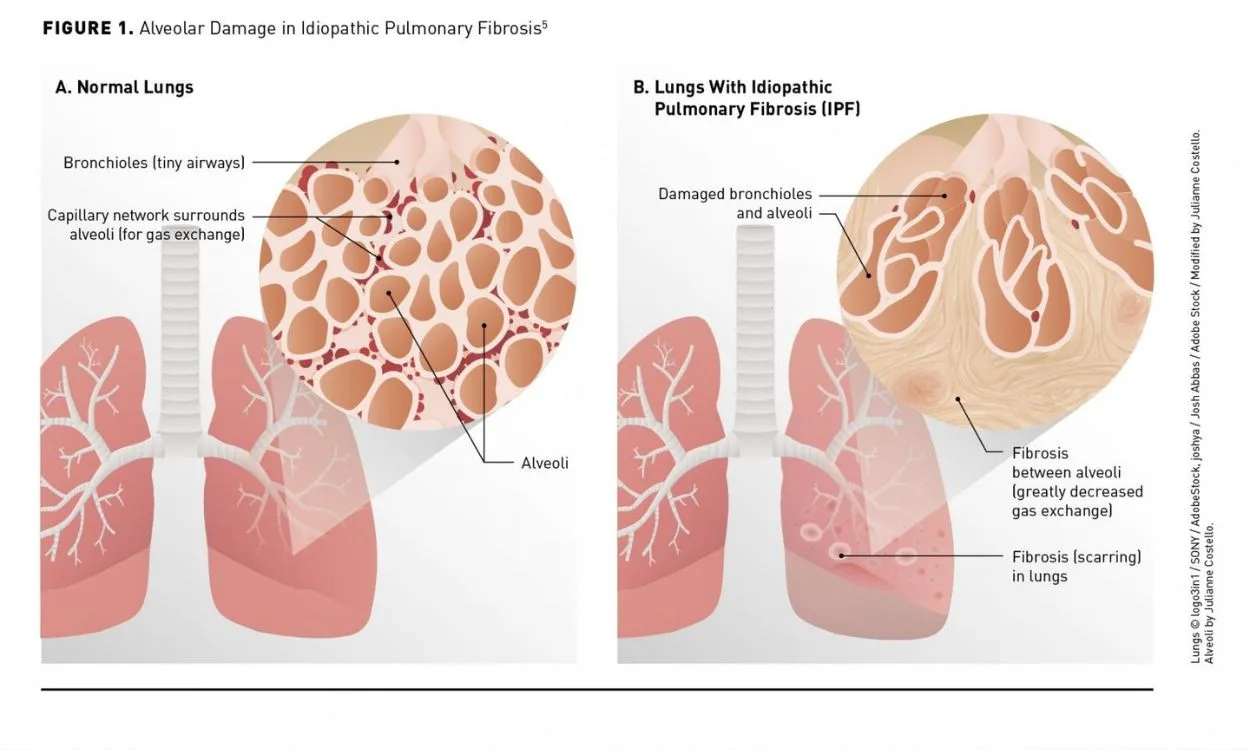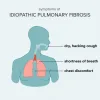How is IPF Diagnosed and Managed?
Introduction
IPF (Idiopathic Pulmonary Fibrosis) is a progressive and chronic lung disease that causes scarring of the lung tissues. It is a condition that affects the air sacs in the lungs, leading to difficulty in breathing and reduced lung function. Early diagnosis and proper management of IPF are crucial for improving the quality of life for individuals with this condition. In this article, we will discuss the diagnostic methods and management strategies for IPF.
Diagnosing IPF
- Medical History: The first step in diagnosing IPF involves taking a detailed medical history of the patient. The healthcare professional will ask about symptoms, exposure to occupational or environmental toxins, and any family history of lung diseases.
- Physical Examination: A thorough physical examination will be conducted to assess lung function and check for any abnormal lung sounds.
- Pulmonary Function Tests (PFTs): PFTs are a series of tests that measure lung capacity and airflow. These tests help determine the severity of lung impairment and may indicate the presence of IPF.
- High-Resolution Computed Tomography (HRCT) Scan: HRCT scan of the chest is the most important imaging modality for diagnosing IPF. It provides detailed images of the lungs and can identify characteristic patterns of fibrosis.
- Bronchoscopy: In some cases, a bronchoscopy may be performed to evaluate the airways and collect samples for further analysis.
- Lung Biopsy: A surgical lung biopsy may be recommended to confirm the diagnosis of IPF. This involves removing a small sample of lung tissue for examination under a microscope.
Managing IPF
- Medications: There are certain medications that can help slow down the progression of IPF and alleviate symptoms. These may include:
- Pirfenidone: This medication reduces lung fibrosis and slows down disease progression.
- Nintedanib: Another drug that can slow down the decline in lung function in IPF patients.
- Oxygen Therapy: For individuals with low oxygen levels, supplemental oxygen therapy may be prescribed to improve breathing and relieve symptoms.
- Pulmonary Rehabilitation: Pulmonary rehabilitation programs help improve lung function, reduce breathlessness, and enhance overall physical strength and endurance.
- Lung Transplantation: In severe cases of IPF where lung function is significantly reduced, a lung transplant may be considered.
- Lifestyle Modifications: Making certain lifestyle changes can also help manage IPF. These may include:
- Quitting smoking: Smoking can worsen lung fibrosis and accelerate disease progression.
- Avoiding environmental toxins: Exposure to certain substances like asbestos and silica can increase the risk of IPF.
- Regular exercise: Engaging in regular physical activity can help improve lung function and overall fitness.
- Eating a balanced diet: A healthy diet rich in fruits, vegetables, and whole grains can provide essential nutrients and support overall health.
Fitpaa and IPF Management
Fitpaa is an AI-driven technology that focuses on metabolism monitoring and management. While it may not directly address IPF, Fitpaa’s holistic approach to health and fitness can complement the management of IPF by promoting overall wellness and healthy lifestyle habits. Fitpaa can help individuals with IPF in the following ways:
- Metabolism Assessment: Fitpaa’s metabolism assessment can provide valuable insights into an individual’s overall health and metabolic profile, which can be helpful in managing IPF.
- Personalized Fitpaa Capsule: Fitpaa’s personalized capsule can offer guidance on nutrition, exercise, and behavior therapy, which can support overall well-being and potentially improve lung function.
- Real-Time Guidance: Fitpaa’s real-time guidance technology can provide motivation, habit-building techniques, and timely nudges to help individuals with IPF stay on track with their health and fitness goals.
Conclusion
Early diagnosis and proper management are crucial in the effective treatment of IPF. Diagnostic methods such as medical history, physical examination, imaging tests, and lung biopsy help in the accurate diagnosis of IPF. Managing IPF involves a combination of medications, oxygen therapy, pulmonary rehabilitation, and lifestyle modifications. While Fitpaa may not directly address IPF, its holistic approach to health and fitness can complement IPF management by promoting overall wellness and healthy lifestyle habits. Download the Fitpaa app today and start your journey towards a healthier and fitter life.









